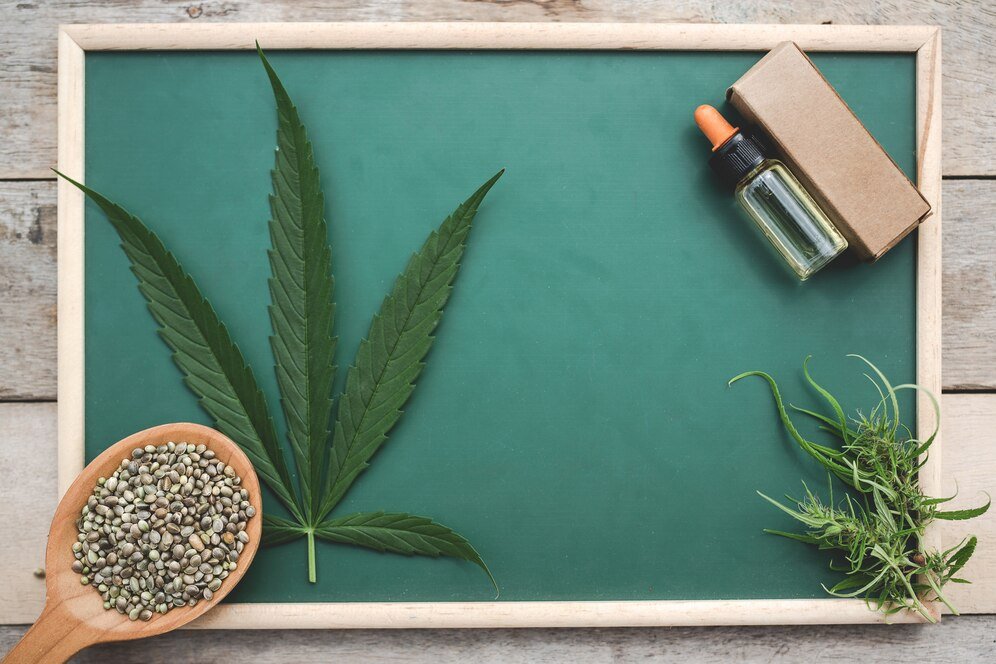
What does CBD Do? Effects, benefits, and uses
In recent years, the interest in CBD (cannabidiol) has skyrocketed, becoming a popular topic in health and wellness discussions. But what does CBD do? Understanding the effects and benefits of this compound is crucial for anyone considering its use. This blog will explore the health benefits of CBD, the science behind it, and how it may be applied in daily life.
Understanding CBD
CBD is one of over 100 compounds found in the cannabis plant. Unlike its more famous counterpart, THC (tetrahydrocannabinol), CBD does not produce a psychoactive effect, meaning it doesn’t get you "high." Instead, it is often touted for its therapeutic properties. As interest grows, a variety of products are now available, from oils and capsules to edibles and topical creams, making it easier than ever to incorporate CBD into your wellness routine.
What Does CBD Do?
At its core, CBD interacts with the body's endocannabinoid system (ECS), which plays a vital role in regulating various physiological processes such as pain, mood, appetite, and sleep. The ECS comprises cannabinoid receptors (CB1 and CB2), endocannabinoids produced by the body, and enzymes that break down these endocannabinoids.
The Mechanism of Action
When you consume CBD, it interacts primarily with CB2 receptors, which are abundant in the immune system and peripheral nervous system. This interaction is believed to contribute to the modulation of inflammation and pain perception. Although CBD does not bind directly to these receptors, it may influence them and enhance the body's natural ability to produce its own cannabinoids.
Effects of CBD
The effects of CBD can vary depending on the individual and the method of consumption. Many people report experiencing:
- Reduced anxiety and stress: One of the most well-known CBD benefits is its potential to alleviate anxiety. Studies suggest that CBD may help reduce social anxiety, post-traumatic stress disorder (PTSD), and general anxiety disorder.
- Pain relief: Another significant benefit of CBD oil is its ability to provide pain relief. Many individuals suffering from chronic pain conditions, such as arthritis or multiple sclerosis, have found relief through CBD products.
- Improved sleep: For those struggling with insomnia or other sleep disorders, CBD may offer a natural alternative. Its calming effects can promote relaxation, making it easier to fall and stay asleep.
- Anti-inflammatory effects: CBD has been shown to have anti-inflammatory properties, which can be beneficial for conditions such as acne, inflammatory bowel disease, and other inflammatory conditions.
What Does CBD Do to the Brain?
Research indicates that CBD may have neuroprotective properties, meaning it could protect the brain from damage and promote overall brain health. Some studies suggest that CBD can help reduce neuroinflammation and oxidative stress, both of which are linked to neurodegenerative diseases like Alzheimer's and Parkinson's.
Moreover, CBD has been studied for its potential to improve cognitive function and may aid in the treatment of neurological disorders such as epilepsy. The FDA has even approved a CBD-based medication called Epidiolex for treating certain forms of epilepsy in children.
Health Benefits of CBD
A List of CBD Benefits
- Anxiety Reduction: Numerous studies have shown that CBD can significantly reduce anxiety levels in both humans and animals.
- Pain Management: CBD interacts with receptors in the brain and immune system to reduce inflammation and alleviate pain.
- Anti-Seizure Properties: CBD is effective in reducing the frequency of seizures in certain types of epilepsy, particularly in children.
- Neuroprotective Effects: Research suggests that CBD may help protect the brain from damage due to neuroinflammation.
- Improved Sleep Quality: Many users report better sleep quality and longer sleep duration when using CBD.
- Mood Regulation: CBD may help stabilize mood swings and alleviate symptoms associated with depression.
- Skin Health: The anti-inflammatory properties of CBD can benefit skin conditions like acne and psoriasis.
- Heart Health: Some studies suggest that CBD may benefit heart health by reducing high blood pressure and preventing heart damage.
Uses of CBD : How to Incorporate CBD into Your Daily Routine
With a growing array of CBD products available, it's essential to find the right method for you. Here are some popular ways to use CBD:
- CBD Oil: One of the most versatile forms, it can be taken sublingually (under the tongue) or added to food and beverages.
- Capsules and Edibles: These provide a convenient way to consume a predetermined dose of CBD.
- Topicals: CBD-infused creams and balms can be applied directly to the skin for localized relief of pain and inflammation.
- Vaping: Inhalation allows for rapid absorption but may not be suitable for everyone due to potential lung health concerns.
- Tinctures: Similar to oils but typically more concentrated, tinctures can be taken directly or mixed with other substances.
Safety and Side Effects
While CBD is generally considered safe, it’s crucial to consult with a healthcare professional before starting any new supplement, especially if you're taking other medications. Some potential side effects include:
- Fatigue
- Diarrhea
- Changes in appetite
- Dry mouth
The Role of Tonic Vault
For those looking to explore the world of CBD, Tonic Vault offers a range of high-quality CBD products. With a commitment to transparency and quality, Tonic Vault ensures that their products are lab-tested, providing consumers with the peace of mind that they are using safe and effective CBD.
Conclusion
The question, "What does CBD do?" opens up a world of possibilities for health and wellness. With its wide-ranging CBD benefits, from anxiety relief to pain management, this compound holds promise for many individuals seeking alternative therapies.
As research continues to evolve, so too does our understanding of CBD and its effects on the body and brain. Whether you’re looking to address specific health concerns or simply improve your overall well-being, CBD may be worth considering as part of your health regimen. Remember, as with any supplement, it's important to do your research and consult with healthcare professionals to ensure it’s the right fit for you.
By exploring options from reputable sources like Tonic Vault, you can confidently navigate the world of CBD and make informed decisions that align with your wellness goals.

